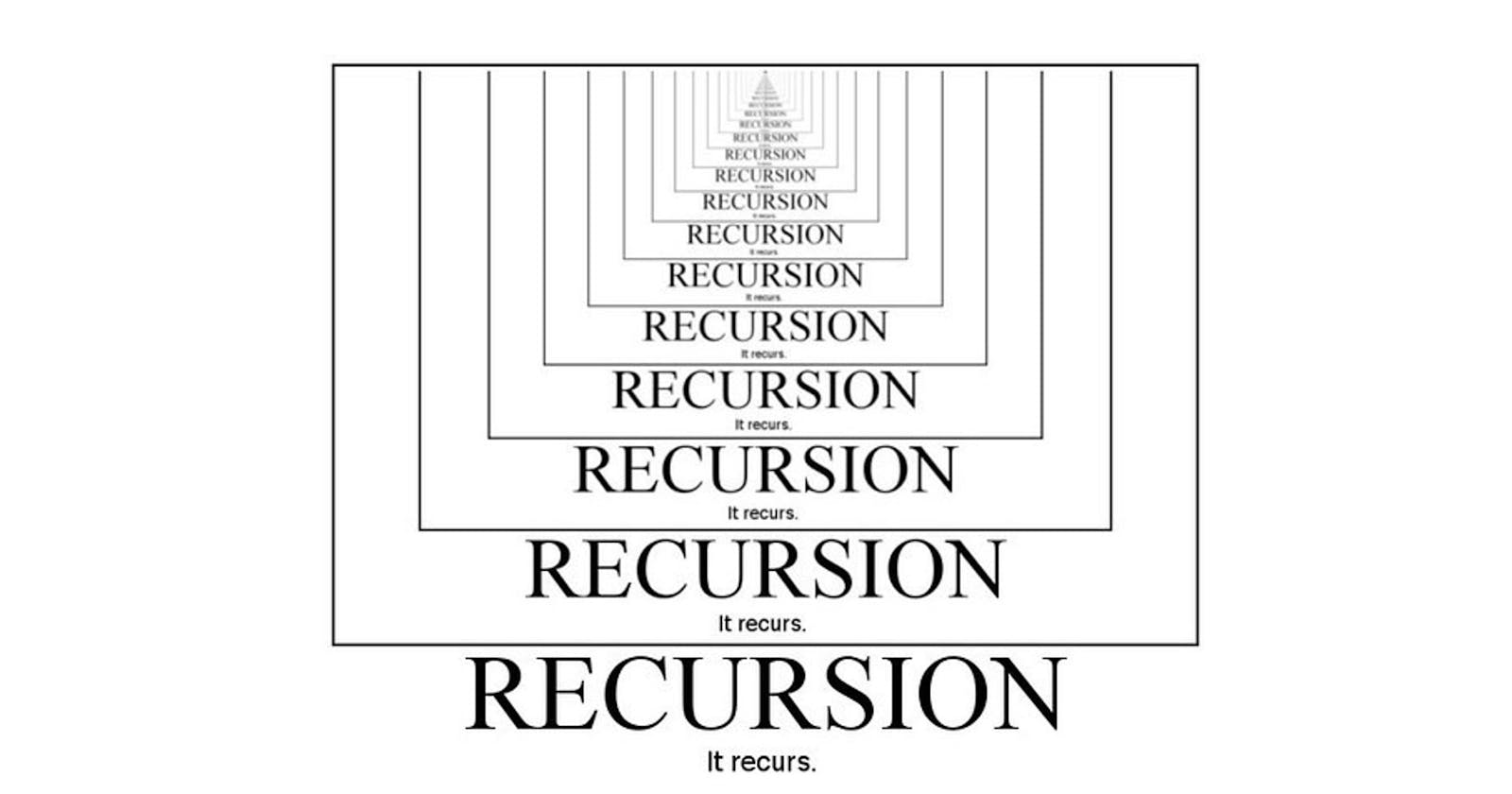A Beginner's Guide to Recursion: Understanding Factorials in C++
Navigating the Basics of Recursive Functions and Factorial Computation
Welcome to the world of programming! If you're just starting your coding journey, you may encounter terms like "recursion" that sound complex at first. Fear not! In this blog post, we'll explore a simple C++ code snippet that calculates factorials using recursion, breaking it down step by step.
The Code: An Adventure into Factorials
Let's take a closer look at the code:
#include <iostream>
using namespace std;
int factorial(int n)
{
// 1. Base case
if (n == 0)
return 1;
// 2. Recursive relation
int smallerProblem = factorial(n - 1);
int biggerProblem = n * smallerProblem;
return biggerProblem;
}
int main()
{
int n;
cout << "Enter the value of n : ";
cin >> n;
int ans = factorial(n);
cout << "Factorial of " << n << " is " << ans << endl;
return 0;
}
Let's Break It Down!
1. The factorial Function:
Base Case: The Simplest Scenario
if(n == 0)
return 1;
Every recursion needs a base case to stop the infinite loop. In this code, when n becomes 0, the function returns 1. Why 1? Because the factorial of 0 is defined as 1.
Recursive Relation: Breaking Down the Problem
int smallerProblem = factorial(n - 1);
int biggerProblem = n * smallerProblem;
return biggerProblem;
Here, the factorial of n is expressed in terms of a smaller problem - the factorial of n - 1. The result of the smaller problem is then multiplied by n to get the factorial of the original n. This is the heart of recursion!
2. The main Function:
int main()
{
int n;
cout << "Enter the value of n : ";
cin >> n;
int ans = factorial(n);
cout << "Factorial of " << n << " is " << ans << endl;
return 0;
}
In the main function, the user is prompted to enter a value for n. The factorial function is then called with this value, and the result is displayed. Simple and effective!
Conclusion: Recursion Unveiled
Recursion might seem like a daunting concept initially, but as you've witnessed, it's a powerful tool for solving problems by breaking them into smaller, more manageable pieces. The code you've explored calculates factorials in a recursive manner, showcasing the elegance of this programming technique.
Remember, practice makes perfect. Experiment with the code, try different inputs, and see how the recursion unfolds. As you gain more experience, you'll discover the beauty and efficiency of recursive solutions in various programming scenarios. Happy coding, and welcome to the exciting world of programming!

